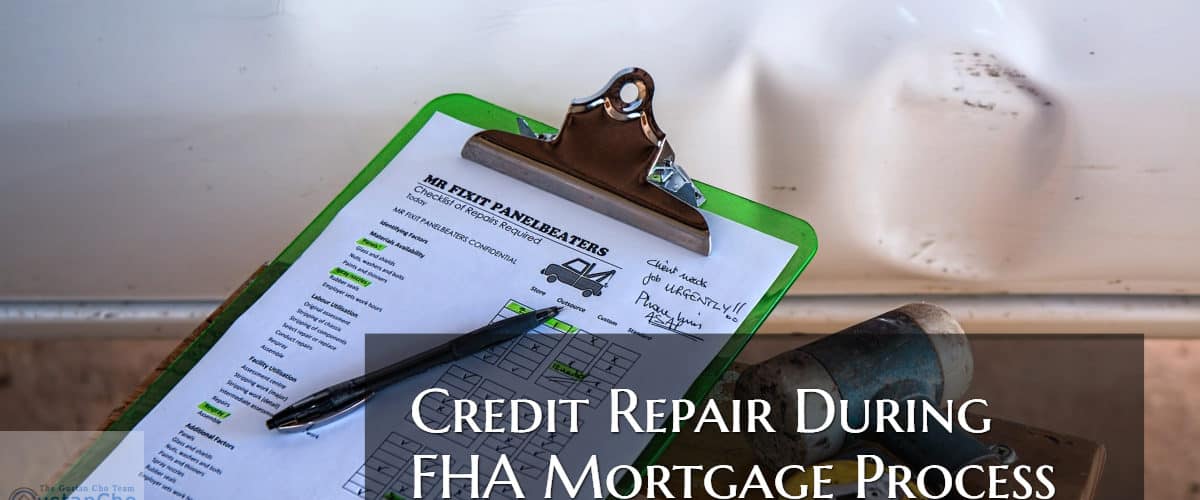Potential homebuyers have something to celebrate today. New Federal Housing Administration (FHA) rules that would’ve stopped thousands of buyers from becoming homeowners have been rescinded. They were scheduled to become effective today. Now, many potential buyers still have a chance to get homes with low down payments through FHA.
See “Credit Disputes to Affect 2012 FHA Mortgages” for more information.
The new FHA rules for credit disputes was put in place to restrict borrowers with collection account or bill dispute on the credit reports. If the borrower had just one disputed account over $1,000 on any credit report, they wouldn’t have been allowed to receive an FHA-approved mortgage loan. Real estate experts believe that these new restrictions would have effected one out of every three applicants applying for an FHA loan.
The Withdrawn FHA Plan
The new rules required all FHA borrowers to resolve any and all disputes and collections before escrow could close. They would have had to either make payment arrangements or completely pay them off, and show FHA proof of these agreements with the creditors. But, many of these disputes were legitimate. They may have been a matter of identity theft, unapproved charges or charges that were higher than they should have been. In these cases, it was simply unfair for borrowers to have to pay them in order to obtain a loan.
In the past, the rules were much more lenient. In the cases of disputes, loan officers dealt with them on a case-by-case basis. They would actually discuss the accounts with the FHA loan applicants. Then, they would make a determination based on that information, to determine the risks of a borrower defaulting on their mortgage loan.
On the surface, disputed bills may look like the consumer is a credit risk. But, on a case-by-case basis, this may not be true. There are other cases where the dispute may be related to low-quality products. The consumers may be disputing the charges because they were promised one product, and the creditor delivered something that simply didn’t meet the promised standards. Before the disputes could be resolved, the creditor would write it up as a “charge off” and sell the accounts to various collections agencies. They would attempt to collect the debt, not caring about the consumers concerns regarding the disputes. Eventually, the debts would be reported to TransUnion, Experian and Equifax as non-paid collection accounts. These types of open collections typically didn’t stop consumers from obtaining an FHA mortgage loan in the past, as long as the disputes were active and legitimate.
Policy Critics
Many critics were against the new policy from day one. They believed that it gave creditors the upper-hand, harming the chances of traditional FHA borrowers obtaining a loan. This group includes minorities, first-time homebuyers and low-to-moderate income families. The policy, according to FHA, was supposed to help them weed out applicants who may be serious risks. But, critics argued that this is not the case. Private lenders had already began imposing stricter restrictions and credit score rules that are known in the industry as “overlays.” This sent many buyers running to FHA for help.
First Mortgage Corporation’s president, Clem Ziroli Jr., spoke about the situation in an interview. He says that FHA accepts qualified applicants whose credit scores are only 580. But, most big lenders require borrowers to have a score of at least 640. This precaution is in response to the housing market bust which sent foreclosure numbers flying through the roof in recent years. They are leery of having to “buy back” FHA mortgages that they approved for clients with meager FICO scores who later foreclosed on their loans. So, they require higher scores even though FHA doesn’t.
FHA has made quite a few changes to their credit score requirements over the years, according to an Ellie Mae LLC analysis. During the last decade, it was routine for borrowers with low-to-mid 600s credit scores to receiving financing. Just this past March, average FHA-approved borrowers had scores of around 724. Then, two months later, in May, that average went down to 713. Although the trend suggests that FHA was seeking to approve those with small amounts of credit issues, it stopped many from obtaining homes. Up until then, FHA had been known for helping borrowers with low-to-moderate incomes and those that are classified as “underserved” in the mortgage industry.
New FHA Rules Coming Soon
Just because FHA has decided to rescind the new regulations doesn’t mean they’re giving up on weeding out those they feel may be high risk borrowers. Sources within the agency say that FHA does have plans to put a new rule in place soon. The upcoming rule will address disputes and collections directly and separately, instead of placing these issues into one standard
In the meantime, there’s hope for who have plans to apply for FHA-approved loans that may have disputes or collections on their credit reports. As of now, with the rule rescinded, these applicants won’t be forced to resolve or pay off the debts before the closing of escrow. However, these applications will probably be referred to loan officers for “manual” underwriting. The loan officer will be required to investigate the circumstances and facts surrounding the disputed or collection accounts. This will most definitely slow up the approval process, which is not good news for sellers.
There are exceptions to the rule, according to FHA policies. When an account that’s in dispute is over 24-months old and it’s under $500, the borrower can still obtain an FHA-approved mortgages. More on these rules and exceptions can be found here: “Credit Disputes to Affect 2012 FHA Mortgages”







